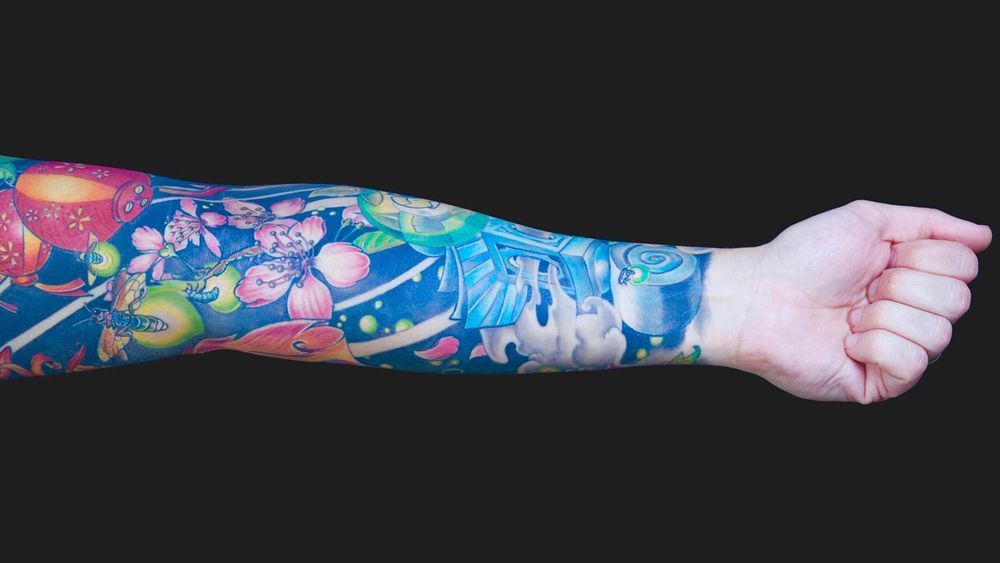Vegan tattoos: Think before you ink
Being vegan shouldn’t stop you from rocking a full sleeve; you just need to make sure you’re clued up before you get tatted up, on what ingredients you should look out for. Veganism, as many of us know, is about so much more than just what we eat, and thankfully the tattoo industry is now well-versed in how the traditional practice of tattooing isn't always vegan-friendly. Certain ingredients and ways of tattooing can mean that unassuming things like a disposable razor and the tattoo ink itself aren’t vegan.
Tattoo ink
As something that’s going to be on your body forever, it had better be vegan! Tattoo ink can contain gelatin, a type of collagen derived from animal muscle and bone that acts as a binding agent to hold ink together.
Most tattoo artists pride themselves on being inclusive toward vegans and will use a vegan tattoo ink that has ingredients such as carbon or burnt logwood. Tattoos often contain bone char, an ingredient used to blacken the ink and create a darker pigmentation. To get the end result of ‘bone char’ is exactly what it sounds like, animal bones are burnt and charred to achieve charcoal.
Tattoo ink can also contain shellac, which according to PETA is the “resinous excretion of certain insects.” These insects are the female lac bug found in Southeast Asia. Before the lac bug lays her eggs she will cover herself entirely in this secretion called ‘shellac’, a desirable commodity that gives a distinct sheen to sweets, furniture polish, and even apples! Farmers will collect the shellac off branches, along with the lac bug’s eggs which are sadly killed as a byproduct of shellac farming.
Tattoo prep and aftercare
Maybe most surprising, at least to us, are the ingredients used in the preparation and aftercare of getting a tattoo. Disposable razors are not only bad for the environment with well over a million thrown away each week, but they also contain glycerin, an ingredient found in the lubricant strip of razor blades. Glycerin derived from animal-based fats is most commonly tallow, aka beef or lamb. Vegan tattoos use glycerin made from vegetable fats.
You can always ask your tattoo artist about the ingredients they use, bring your own reusable razor, or just book a vegan tattoo artist who specialises in vegan tattoos. You’ll be supporting a vegan artist and can feel assured that your new ink is cruelty-free.
Another important aspect of tattoo aftercare is vegan tattoo balm. Beeswax is a popular ingredient used to soothe and moisturise dry and sensitive skin, especially after a tattoo. Many creams will use beeswax as a natural anti-inflammatory to create a barrier to prevent the newly inked skin from getting infected. Look out for balms that contain ingredients such as olive oil, shea butter, jojoba oil, or even coconut oil.
Most importantly, feel excited about your new tattoo and try not to worry too much!
For all things vegan tattoo check out our interview with vegan tattoo artist Mogg.
